Lowestoft: A Tale of Shifting Sands
The Highs and Lows of Living in a Seaside Town
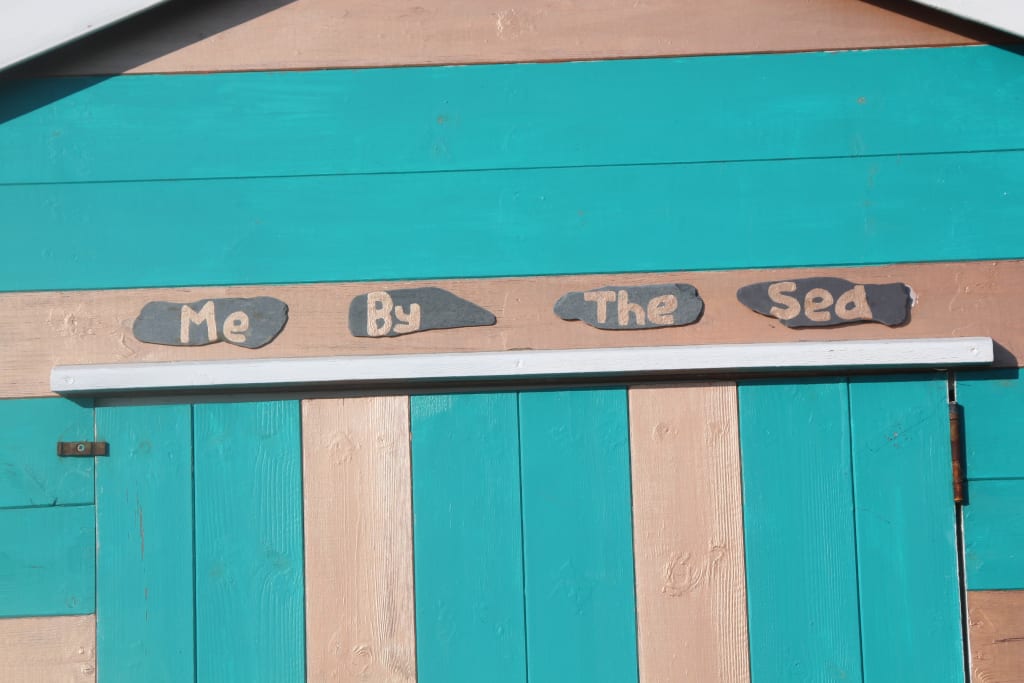
When I was a kid, I thought everyone lived by the sea.
I was so used to hearing the harsh call of seagulls and being within walking distance of a beach, that it never occurred to me that some children lived far away from the coast. The revelation, when it hit me around the age of ten, woke me from a little bubble and slowly added new appreciation for my hometown, and what it means to me.
I live in Lowestoft, the most easterly point of England. A tiny little town sticking out into the North Sea. You are never far from a sea breeze around here - it cools you in summer and keeps the worst of the winter chill at bay. It also makes the town an ideal place for a wind turbine. Ours is named 'Gulliver' and was the first in Suffolk and remains the tallest in the UK.
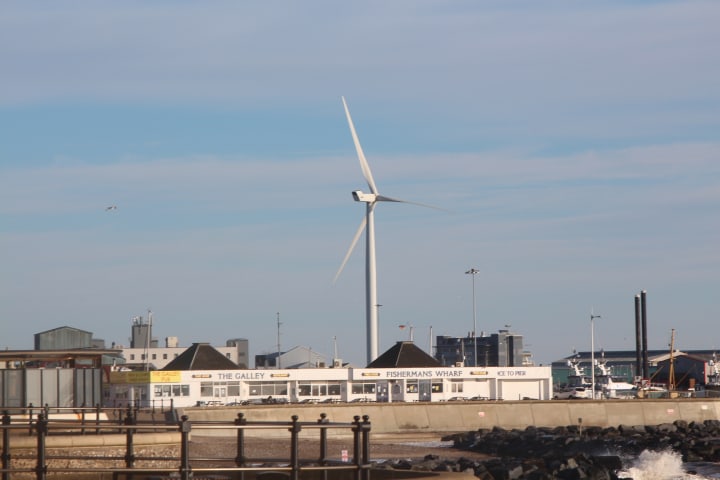
Lowestoft is an ancient settlement. Humans were here in prehistoric times, and one of the oldest churches was built by the Saxons and recorded in the Domesday Book of 1086.
It was founded on fish, specifically herring, or as they were known by the fishermen who caught them 'the silver darlings'. There was even a war fought in the seventeenth century over the fishing grounds, with privateers attacking the fishing fleet of a neighbouring town and stealing their catches.
Ironic that today the fishing trade is all but extinct in Lowestoft.

Lowestoft's fortunes have risen and fallen with the sea. When fishing began to tail off, efforts were made to turn the town into an idyllic seaside resort, attracting smart Victorian families seeking the refreshing sea air.
The great promenade was built in this period, lined with hotels and concrete beach huts, to provide comfort for those seeking to enjoy the sea. Lowestoft became a famous holiday resort and the place where people came year after year to enjoy their holidays.

However, life changed. First there were two world wars, where Lowestoft was a prime target and a potential landing point for an invasion. Then came the rise of the package holiday abroad and the guarantee of warm sunshine. The Lowestoft charm became faded and with the disappearance of the fishing industry in the area, it suddenly was a town with a bleak future ahead.
I grew up in a Lowestoft that had long lost its glory. Rising unemployment and poverty, along with the correlating increase in crime paints a sorry picture. Many of the fancy hotels are now shut and turned into cheap flats. The houses that once were the epitome of Victoria style, now look rundown and ragged.
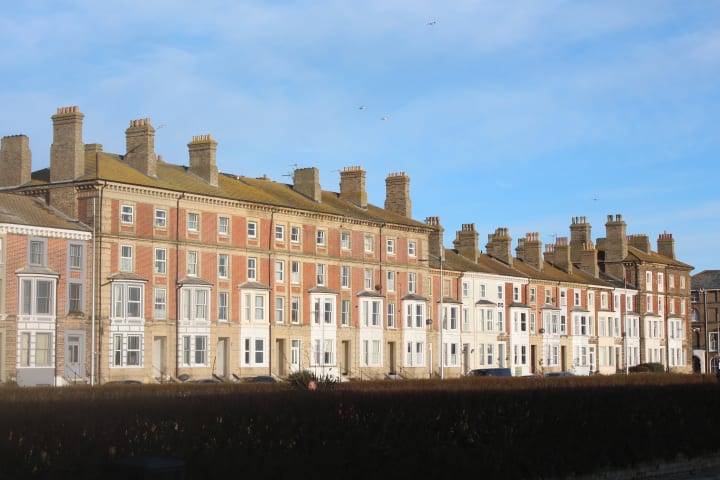
There is a lot you could find to dislike about Lowestoft, certainly its lack of opportunities for the young and a sense that it has been forgotten about by a government based in London, makes it seem at times a desolate place. In winter it seems a husk, waiting for the hopes of spring and summer. The recent pandemic has not improved matters, with an already struggling high street now looking like a barren collection of empty rental units.
If you look on the surface, Lowestoft could seem the last place you would want to go. So why do I love this place so much that it feels as if it is a part of my soul?
It all comes down to that roaring sea that has nurtured and tortured the town in equal measure. The sea gives and it certainly takes, yet it is always, the sea.
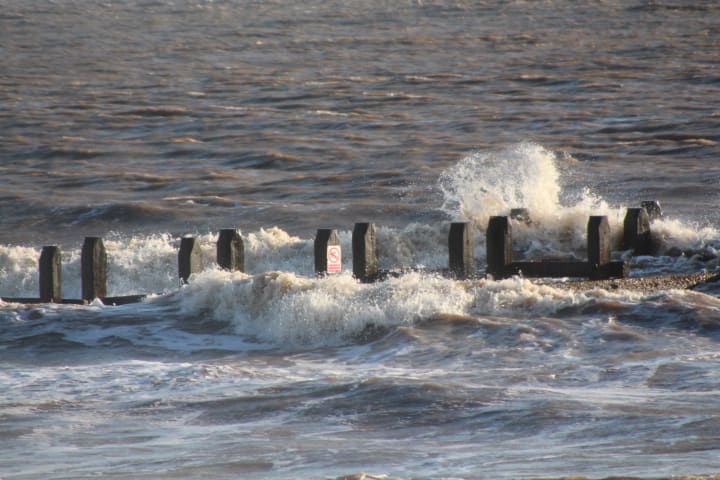
You don't live by the sea all your life without learning to respect the waves and their tidal power. In a heartbeat a storm can surge up the beaches and rip away sections of coastline, taking with it whatever happens to be there.
Coastal erosion is part and parcel of existence here, and you can see the signs on a daily basis. As fast as man attempts to hold back the sea, so the sea surges anew and makes our work seem pointless.
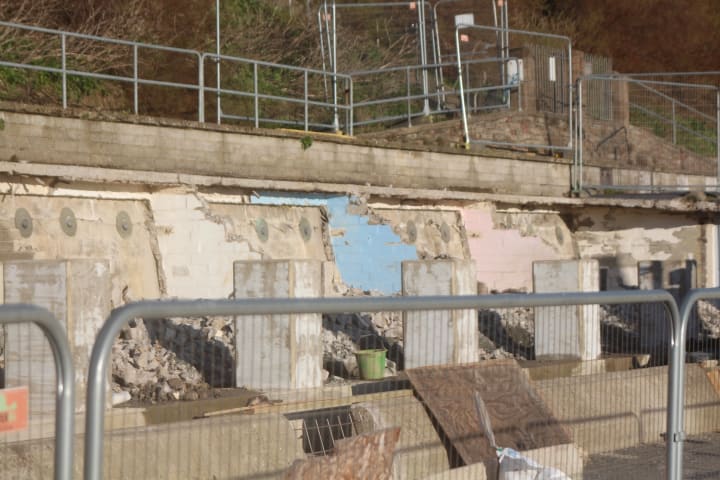
The terribleness of the sea is something that is never depicted on tourist adverts or holiday postcards, but it is part of the reason I love this place. The sheer raw energy of those waves, the knowledge that nothing we can do can truly quell them, their immutable dominance of the coast is something that fills me with awe, as well as a chill of fear.
I have walked paths that the following day no longer exist, snatched overnight by a greedy ocean. I have seen the carcasses of old buildings dragged down from the clifftops and tossed on the shoreline.
I have seen enormous trees cast onto the stones of the beach as if they were sticks thrown by a giant child. It is frightening, when you think about it, yet also magnificent.
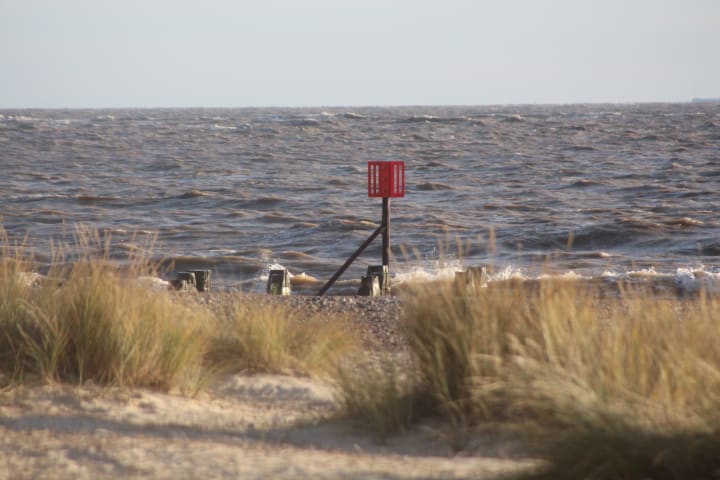
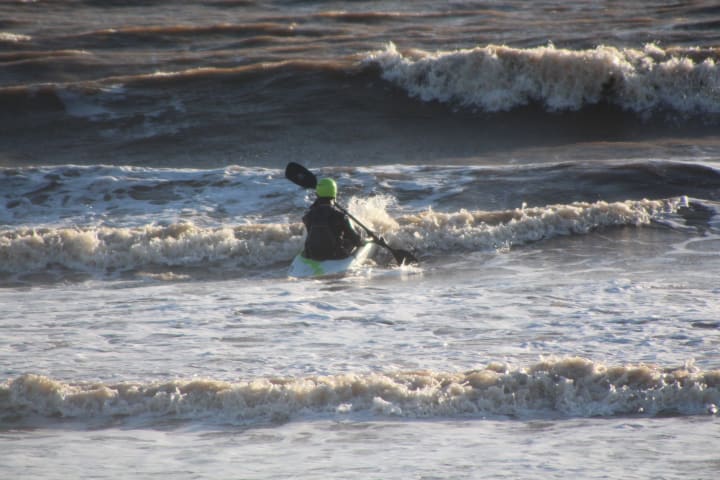
The sea keeps me grounded. Whenever life is becoming too much, a walk along the shore reminds me there are bigger things out there. The waves do not care about my troubles, they have been rolling up to the sand for millennia and shall continue to do so long after I am dust in the earth.
Curiously, I find the sea unchanging, and that is consoling, even though it constantly changes the world around it. It bites away the cliffs and sweeps away the works of man, but it always remains the same, powerful force.
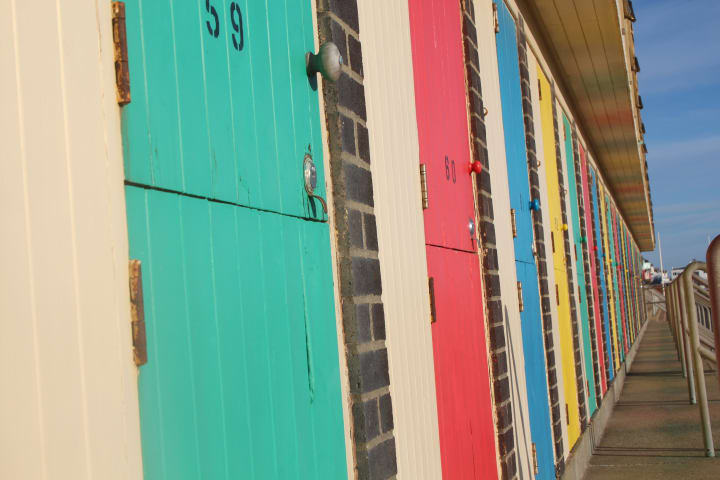
Fierce, unrelenting, cruel and destructive, that is the sea. Beautiful, bountiful, soothing and magical, that is also the sea.
I cannot imagine being away from this place, not for long, it would be like a part of my soul had been snatched out of my chest. There is little in this world you can rely on, but I can rely on the sea to always be there, always roaring.
And not just any sea, this patch of sea off Lowestoft, where the waves are cold even in summer and the salt spray is forever on your lips. I cannot suppose that anyone who has not grown up here can appreciate this stretch of sea, or understand my passion. But that is ok. I love this private communion I have with the great ocean on my doorstep.
Walking alongside the crashing waves, I always feel I am home.

About the Creator
Sophie Jackson
I have been working as a freelance writer since 2003. I love history, fantasy, science, animals, cookery and crafts, (to name but a few of my interests) and I write about them all. My aim is always to write factual and entertaining pieces.






Comments
There are no comments for this story
Be the first to respond and start the conversation.